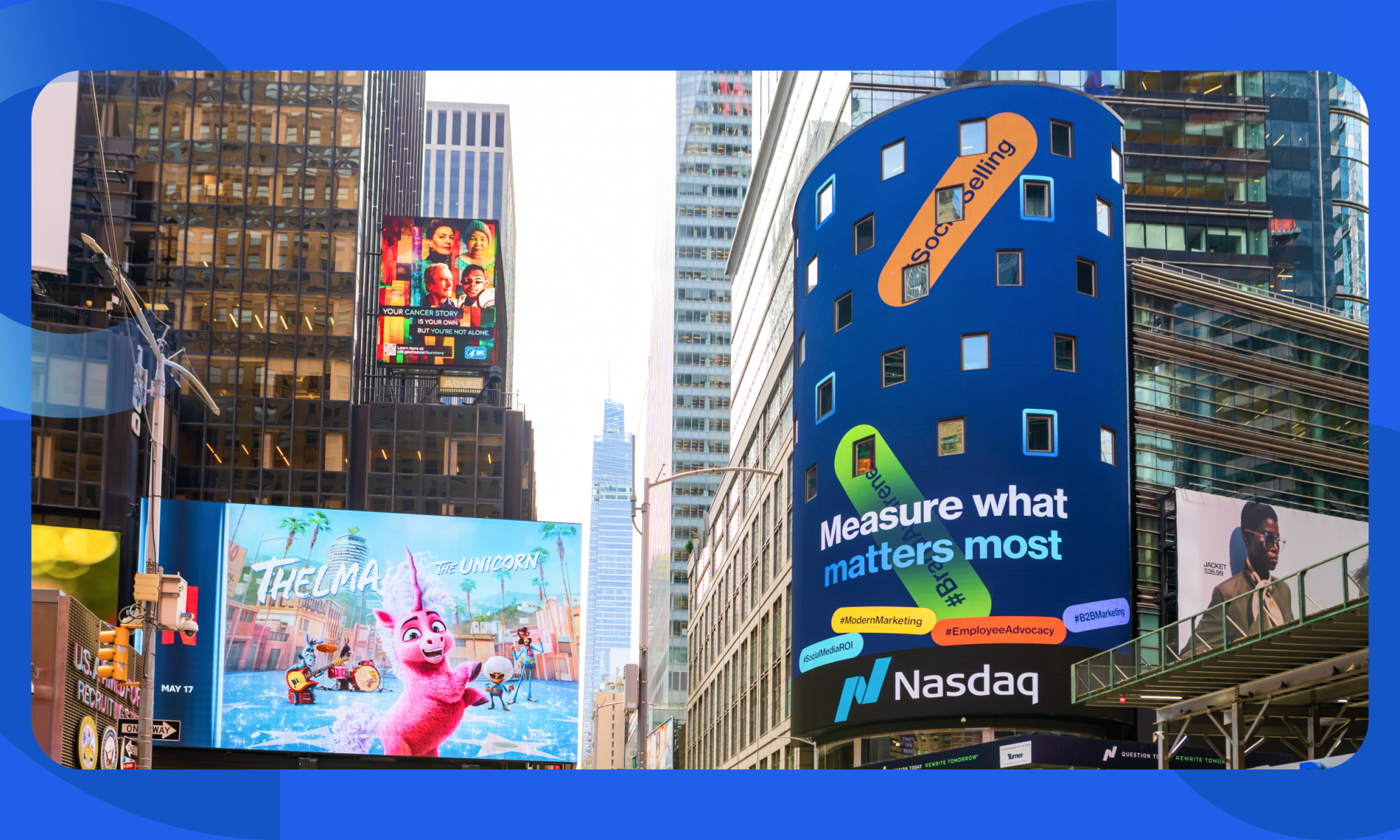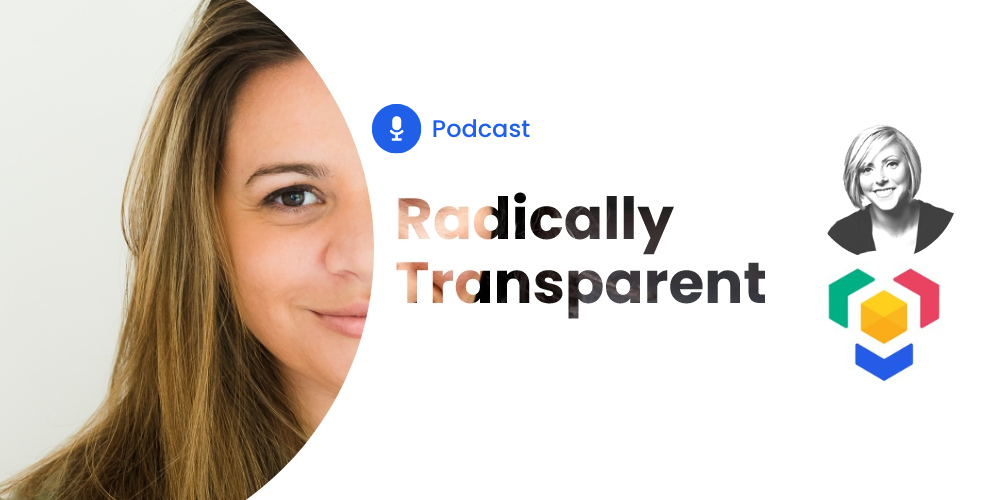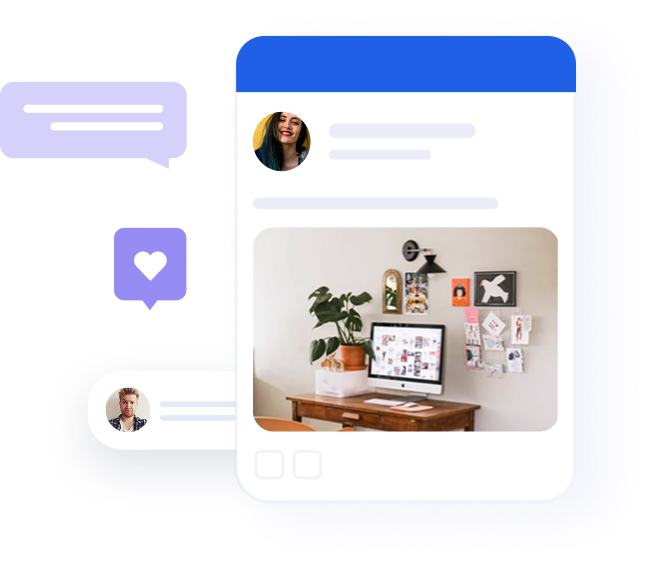Employee advocacy B2B: a complete marketing strategy guide

Table of contents
- Why should employee advocacy be a cornerstone of your B2B marketing strategy?
- Employee advocacy is cost-effective
- Measure the impact of employee advocacy and know your impact
- Reducing turnover and fostering employee engagement
- Creating a culture of advocacy
- Realizing the full potential of employee advocacy
In B2B marketing, employee advocacy is paramount for building a company’s social media presence and overall marketing success. This powerful marketing strategy leverages your employees as brand ambassadors, enabling you to amplify your reach, build brand authority, and solidify trust with your target market. From technology companies to businesses in the legal or financial sector, employee advocacy should be the cornerstone of your B2B marketing strategy. Here’s why:
Why should employee advocacy be a cornerstone of your B2B marketing strategy?
Amplifying your brand’s organic reach
Imagine your company’s social media page has 10,000 followers—a respectable number. On average, a LinkedIn user has around 500 connections. Simple math shows that a company of 200 employees can have a collective pool of 100,000 connections spanning various industries and companies, far outnumbering your company’s following.
When employees share posts about your brand, the reach of your messaging multiplies exponentially, extending far beyond your company’s immediate network.
This organic amplification is not just about numbers; it’s about credibility. Content shared by individuals is often seen as more authentic and trustworthy than content directly from brands. When employees advocate for your company, they infuse a personal touch, making your brand’s message resonate more deeply with a broader audience.
Enhancing engagement rates
Employee-shared content tends to garner higher engagement rates compared to traditional brand posts. Employees are perceived as trusted sources within their professional networks on social media platforms. As we know, LinkedIn’s algorithm (supposably) emphasizes showing its users’ content to their connections over a brand’s content.
When your advocates share company updates, insights, or achievements, many of their connections are likely to see the post in their feed, and they are not your brand’s page followers. We also see increased engagement in posts because your employees’ contacts are more likely to engage with content shared by their friends and colleagues. Employees posting company content amplifies reach and fosters a more interactive social media presence.
Building trust and credibility through authentic connections
In B2B marketing, relationships and credibility are paramount.
Employee advocacy leverages the trust and respect employees have within their networks to build authentic connections. Prospective clients and partners are more likely to engage with content shared by a trusted contact than a branded advertisement. There is nothing less engaging than a promoted post in our feed. (When I see a promoted post on my feed, I look to see why I was targeted/chosen to see it). An authentic employee post becomes peer-to-peer communication that creates engagement and fosters authentic connections, making your brand’s message more credible.
Thought leadership and expertise
Employees who share industry insights, participate in relevant conversations and contribute to thought leadership enhance their professional profiles and the company’s reputation. This visibility positions your company as a leader in the industry, attracting potential clients and partners who value expertise and innovation. When your company employs professional thought leaders, it enhances your brand authority. People value companies that employ remarkable professionals.
Employee advocacy is cost-effective
Integrating advocacy with paid campaigns
Employee advocacy can complement and diversify your paid social media campaigns. Traditional paid social advertising is effective, but combining it with employee advocacy can yield better results.
Consider this scenario: your company invests $20K monthly in paid social advertising. You can integrate advocacy efforts into your overall strategy by allocating a portion of this budget—say $4K per month—to a social media management platform that supports employee advocacy. To not increase the original budget, you now invest $15K for continued paid social advertising while leveraging the additional reach and engagement generated by your employees. This method will introduce more diversity to your social strategy, and as Nobel laureate Harry Markowitz famously asserted, diversification is the only free lunch.
The combined approach can enhance the effectiveness of your paid campaigns, as employee-shared content often garners more engagement. Sponsored posts benefit from being seen by more people based on target audiences. Yet, by diversifying your efforts with an advocacy program, you can test the results- Reach, Engagement, Clicks, and Website traffic of paid + advocacy versus paid only. Invest the $1,000 per month that you saved in creating short and engaging content to boost your advocacy program further.
Recommended for further reading
Measure the impact of employee advocacy and know your impact
Compare your results before and after you had employee advocacy
To fully appreciate the benefits of employee advocacy, it’s essential to measure its impact accurately. Metrics such as reach, engagement, clicks, and website traffic provide valuable insights into the effectiveness of your advocacy efforts. By comparing the performance of paid social campaigns with and without the support of employee advocacy, you can assess the added value of advocacy programs.
Track growth in lead generation
Tracking how advocacy efforts influence lead generation, brand awareness, and overall engagement helps refine your strategy and demonstrate the tangible benefits to stakeholders. Ensure your advocacy program evolves based on real-world performance, maximizing its impact.
Showcasing company culture
Employee advocacy does wonders for your employer brand. When employees openly share job openings, celebrate company successes, and showcase the expertise of their colleagues, they paint a vivid picture of your company culture. Sharing is caring, so it humanizes your brand, making it more relatable and attractive.
Attracting top talent
Employees who actively participate in advocacy efforts become thought leaders in their fields, further boosting the company’s reputation. This visibility attracts potential talent eager to join a company that values and empowers its employees. Prospective candidates see a workplace where employees are proud, engaged, and recognized for their contributions, making it an enticing workplace.
Reducing turnover and fostering employee engagement
Employee loyalty and retention
Employee advocacy is a win-win for both the company and its employees. When employees engage in advocacy, they are more likely to feel a sense of pride and loyalty toward their employer. This engagement translates to lower turnover rates, as employees are more invested in a company that supports their professional growth and recognizes their efforts.
Professional development and recognition
Through advocacy programs, employees can enhance their professional profiles by posting, commenting, and participating in industry conversations. Better professional profiles benefit their careers and also position the company as a thought leader in the industry. A workforce that is engaged and proud of their company is a powerful asset, contributing to a positive work environment and a strong company reputation.
Creating a culture of advocacy
Encouraging participation
Successful employee advocacy starts with a supportive company culture. Encourage employees to share their experiences, successes, and insights. Provide them with the tools and resources to advocate effectively, such as training sessions, content suggestions, and social media guidelines.
Recognition and incentives
Recognition and incentives can also play a crucial role. Acknowledging and rewarding employees who actively participate in advocacy programs can motivate others. Consider implementing gamification elements like leaderboards or contests to make advocacy engaging and fun.
Realizing the full potential of employee advocacy
Integrating advocacy into your strategy
Employee advocacy is more than just a marketing tactic—it’s a powerful strategy that can transform your B2B marketing efforts. Employee advocacy offers myriad benefits by amplifying your brand’s reach, building trust, enhancing your employer brand, reducing turnover, and diversifying paid advertising.
Empowering your workforce
Investing in an employee advocacy program is not just about leveraging your employees’ social networks; it’s about empowering your workforce, fostering a positive company culture, and creating a more authentic and engaging brand presence. Embrace employee advocacy as a core component of your marketing strategy and unlock its full potential for your company’s success.
By looking at employee advocacy in a new way, you can realize its extensive business benefits and position your company as a leader in the B2B space. So, take the first step towards creating a thriving advocacy program and watch your brand’s influence and success soar.




